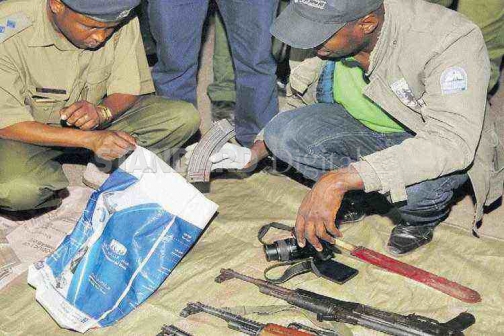×
The Standard e-Paper
Home To Bold Columnists

When a suspect identified as Corporal Jackson Kilonzo was shot dead by police officers in Nairobi last week, alarm bells started ringing.
Questions emerged on the growing number of officers shot by fellow officers at crime scenes. Just a few months earlier in Uasin Gishu County, a Directorate of Criminal Investigations (DCI) detective was shot dead by his Administration Police Service counterparts as he ran away from a crime scene during a botched robbery.